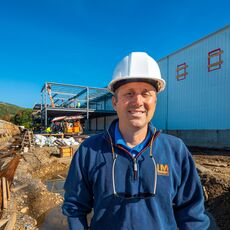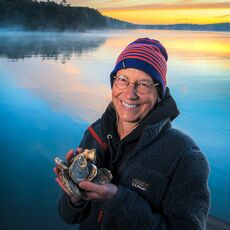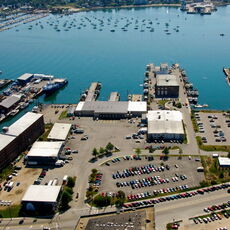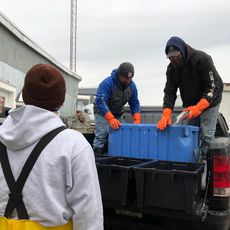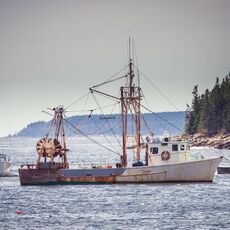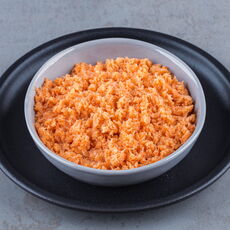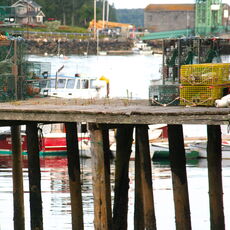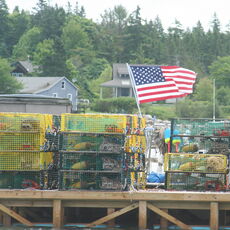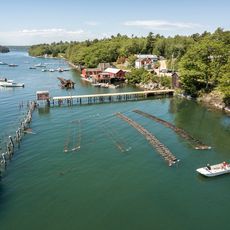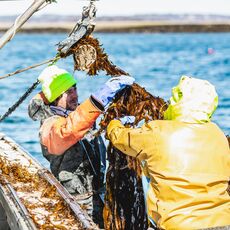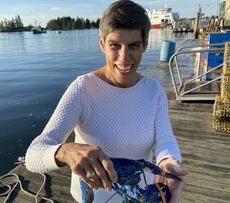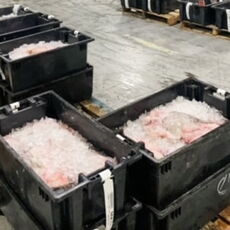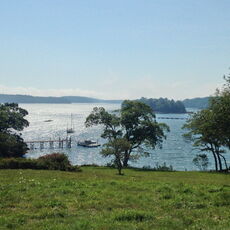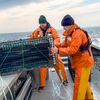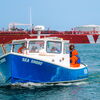Processing Your Payment
Please do not leave this page until complete. This can take a few moments.
- News
-
Editions
-
- Lists
-
Viewpoints
-
Our Events
-
Award Honorees
- 2025 Business Leaders of the Year
- 2025 Outstanding Women in Business
- 2024 40 Under 40 Honorees
- 2024 Women to Watch Honorees
- 2024 Business Leaders of the Year
- 2023 NextUp: 40 Under 40 Honorees
- 2023 Women to Watch Honorees
- 2023 Business Leaders of the Year
- 2022 NextUp: 40 Under 40 Honorees
- 2022 Women to Watch Honorees
- 2022 Business Leaders of the Year
-
-
Calendar
-
Biz Marketplace
- News
-
Editions
View Digital Editions
Biweekly Issues
- September 22, 2025
- September 8, 2025
- August 25, 2025
- August 11, 2025
- July 28, 2025
- July 14, 2025
- + More
Special Editions
- Lists
- Viewpoints
- Our Events
- Calendar
- Biz Marketplace
Fisheries & Marine
-
Harbor horizons: New waterfront investment seeks to enhance Camden’s power of attraction
Laurie Schreiber Updated: October 18, 2021A 2020 fire severely damaged Lyman-Morse's facility on Camden Harbor, but the boatbuilder is rebuilding there. The president of the Thomaston-based company views the project as a way to serve both the customer base and the community.
Laurie Schreiber Updated: October 18, 2021The Damariscotta region is rich in all things oyster
Jessica Hall Updated: October 18, 2021Can the Maine midcoast be to oysters what California's Napa Valley is to wine? Oysters have long been harvested along the Damariscotta River, and the industry is spreading. Maine produced 10 million oysters last year.
Jessica Hall Updated: October 18, 2021Industry input may help shape future of Portland Fish Pier, Exchange
Jessica Hall October 12, 2021The Portland Fish Pier and the Portland Fish Exchange are under scrutiny, and tenants and other users are providing feedback on issues such as hours of operation, mix of harvesters represented, and interaction with the public.
Jessica Hall October 12, 2021Gulf of Maine Research Institute will use $750K grant to expand region's 'blue economy'
Staff October 1, 2021GMRI’s Blue Economy Initiative envisions a “Gulf of Maine corridor” from Maine to Boston as a global hub of innovation. The grant aims to enhance the region’s seafood industry, create high-quality jobs, and generate blue economy entrepreneurship.
Staff October 1, 2021With Maine partnership, hospitality giant Aramark will buy more New England seafood
Jessica Hall September 30, 2021Aramark with increase local seafood sourcing in New England for some large accounts, through a partnership with the Portland-based Gulf of Maine Research Institute.
Jessica Hall September 30, 2021Next: It's been a year of adaptation for Luke Holden, founder of Luke’s Lobster
Jessica Hall Updated: October 4, 2021When overseas business nose-dived and the pandemic shuttered restaurants, Holden expanded the company’s branded grocery line and created an online seafood market to help fishermen have a place to sell their harvest.
Jessica Hall Updated: October 4, 2021Lobster marketing group to promote little-used ingredient for recipes
Laurie Schreiber September 29, 2021Consumers may be familiar with whole lobster as their meal highlight. A new marketing campaign promotes the use of mince as an ingredient in products such as lobster butter.
Laurie Schreiber September 29, 2021Maine lobster industry groups sue feds over plan to protect right whales
Staff Updated: September 28, 2021The complaints say the plan is based on flawed data and fails to account for the positive impact of conservation measures already adopted by Maine’s lobster fishery. Federal regulators are "targeting Maine lobstermen because it is easy,” said an
Staff Updated: September 28, 2021Mills urges feds to suspend whale protection rule that could cost Maine millions
Staff Updated: September 27, 2021Gov. Janet Mills called for suspension or delay of a rule that places a seasonal lobstering ban in some waters and imposes new gear marking and modification requirements. Costs and revenue losses for Maine are projected to be over $30 million.
Staff Updated: September 27, 2021Bremen-based Community Shellfish opens Connecticut outpost
Jessica Hall Updated: September 20, 2021Community Shellfish has opened a Connecticut warehouse to reach customers in affluent markets directly, rather than relying on middlemen distributors.
Jessica Hall Updated: September 20, 2021Downeast conservation project expected to have economic benefits
Staff September 17, 2021A new conservation protection project in Hancock County is expected to provide both environmental and economic benefits to the region on 13,500 acres west of Cherryfield. The acquisition provides recreational opportunities and wildlife passage.
Staff September 17, 2021Kelp grower completes funding round, adds business partners
Staff September 17, 2021Atlantic Sea Farms, a commercial kelp grower and processor, is preparing to expand with the completion of a funding round, the addition of business partners and board members and a move to a much larger facility.
Staff September 17, 2021Q&A: Seafood industry expert sees lots of potential in food accelerator program
Laurie Schreiber September 13, 2021A long-time seafood industry expert is working with Maine-based seafood and aquaculture businesses interested in scaling up profitability and market reach. The goal is to expand the industry and create jobs.
Laurie Schreiber September 13, 2021Small Maine agricultural, seafood businesses eligible for pandemic relief
Renee Cordes September 12, 2021New grant programs announced include $650 million in Pandemic Response and Safety Grants and $50 million in Seafood Pandemic Response Safety block Grants.
Renee Cordes September 12, 2021Charitable seafood program serves both fishermen and the food insecure
Staff September 10, 2021Nearly $1 million was raised to buy seafood from Maine's small-boat fishermen, providing revenue for the fishermen while donating the fish to schools, food banks and community groups.
Staff September 10, 2021New UMaine aquaculture research highlights consensus — and disagreement
Staff Updated: September 8, 2021A new study shows there’s widespread agreement that economic diversification in coastal Maine is a benefit of the aquaculture industry. But there’s disagreement about who should and will benefit from further development.
Staff Updated: September 8, 2021
Today's Poll
Sponsored by: Kennebunk Savings Bank
With the official end of summer this past weekend, we're taking a look back at how the season unfolded.
Back in early August, we asked how the summer tourism season was going — and at the time, the majority of respondents told us it could be better. And remember, the season started very rainy and ended amid a drought.
Now that the season has wrapped up, we're checking in again to see how things ended. Did things improve? Did tourism pick up later in the summer, or did the season fall short of expectations?
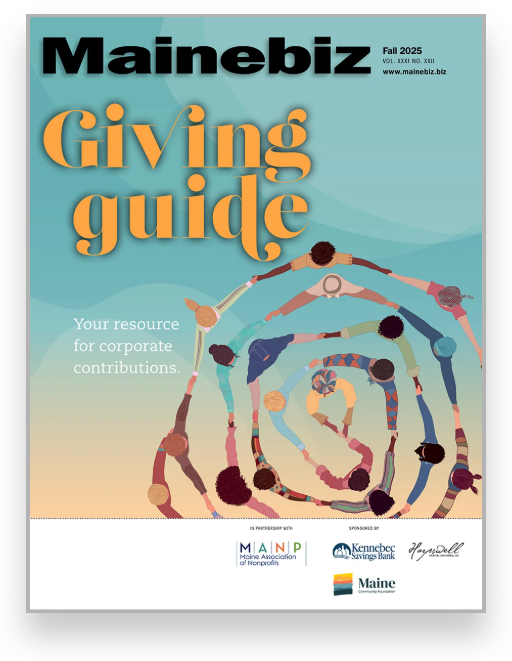
The Giving Guide
The Giving Guide helps nonprofits have the opportunity to showcase and differentiate their organizations so that businesses better understand how they can contribute to a nonprofit’s mission and work.
Learn More
Work for ME
Work for ME is a workforce development tool to help Maine’s employers target Maine’s emerging workforce. Work for ME highlights each industry, its impact on Maine’s economy, the jobs available to entry-level workers, the training and education needed to get a career started.
Learn More
Groundbreaking Maine
Whether you’re a developer, financer, architect, or industry enthusiast, Groundbreaking Maine is crafted to be your go-to source for valuable insights in Maine’s real estate and construction community.
Learn more-
The Giving Guide
The Giving Guide helps nonprofits have the opportunity to showcase and differentiate their organizations so that businesses better understand how they can contribute to a nonprofit’s mission and work.
-
Work for ME
Work for ME is a workforce development tool to help Maine’s employers target Maine’s emerging workforce. Work for ME highlights each industry, its impact on Maine’s economy, the jobs available to entry-level workers, the training and education needed to get a career started.
-
Groundbreaking Maine
Whether you’re a developer, financer, architect, or industry enthusiast, Groundbreaking Maine is crafted to be your go-to source for valuable insights in Maine’s real estate and construction community.
ABOUT
NEW ENGLAND BUSINESS MEDIA SITES
No articles left
Get access now
In order to use this feature, we need some information from you. You can also login or register for a free account.
By clicking submit you are agreeing to our cookie usage and Privacy Policy
Already have an account? Login
Already have an account? Login
Want to create an account? Register
This website uses cookies to ensure you get the best experience on our website. Our privacy policy
To ensure the best experience on our website, articles cannot be read without allowing cookies. Please allow cookies to continue reading. Our privacy policy
